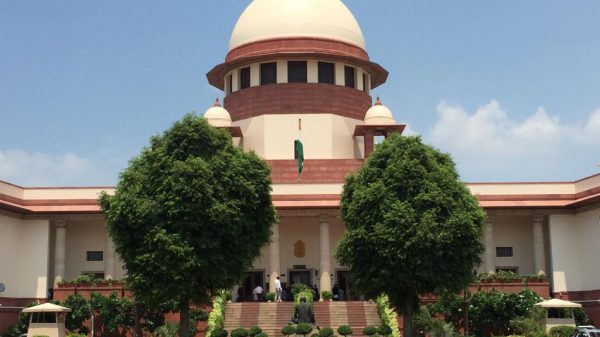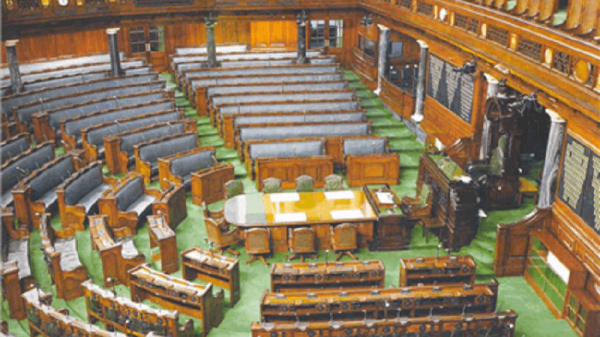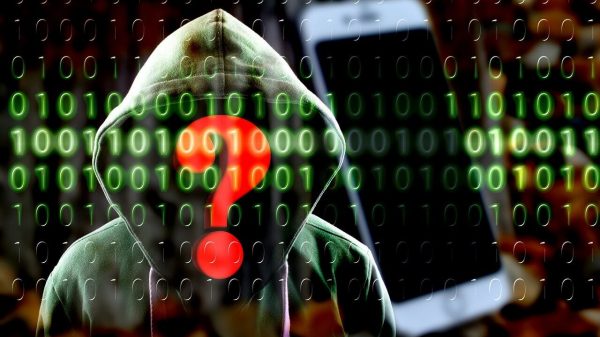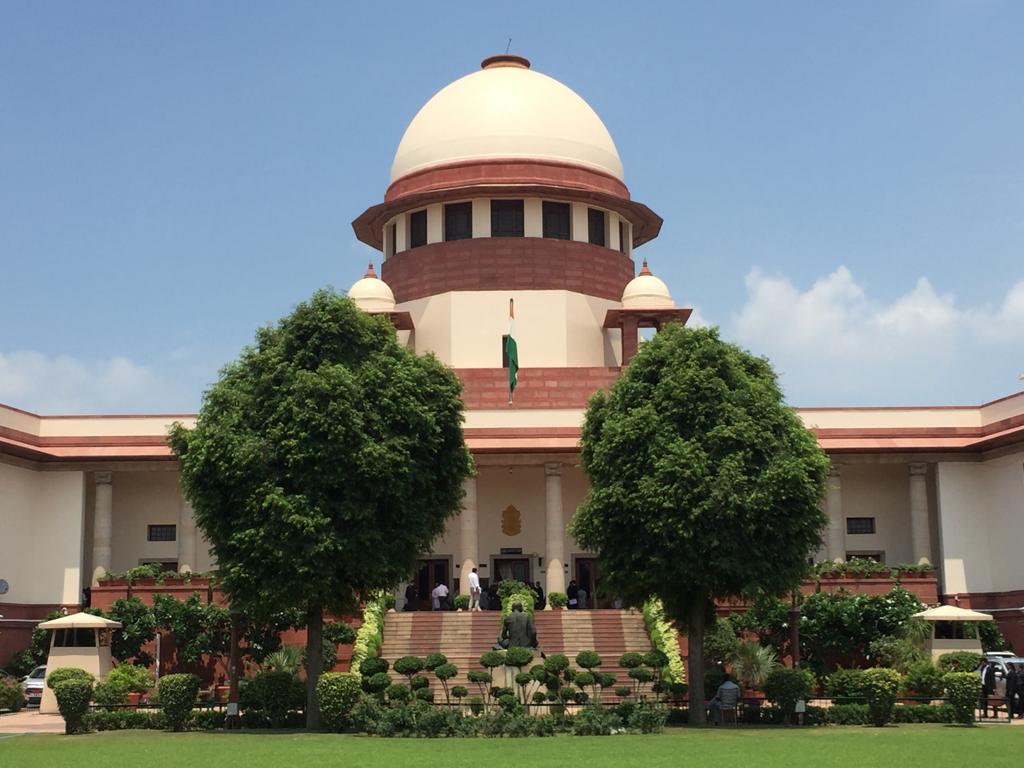The petition alleged that Pegasus surveillance violated Freedom of Press and argued that citizens had a right to know if the government was responsible for the use of such cyber weapons.
“Citizens of India have a right to know if the Executive government is infringing the limits of their authority under the Constitution…,” the Editors Guild of India said while requesting the Supreme Court in a petition to appoint a court-monitored Special Investigation Team to probe the Pegasus spyware controversy.
Why it matters? Since there has not been any intervention from the Indian government regarding the Pegasus spyware controversy — surveillance attempts that potentially targeted several Indian activists, politicians, and journalists — many have been forced to look towards the Indian judiciary for relief regarding the matter. Concerns about the Indian government’s inaction on the issue are notable since Israel-based NSO Group, the creator of the spyware, maintains that they only sell their products to vetted governments and their agencies. Many of the alleged targets including former Election Commission member Ashok Lavasa and others have been critical of the Bharatiya Janata Party-led Indian government at one time or the other.
The petition by the Editors Guild of India and journalist Mrinal Pande filed under Article 32 of the Constitution (right to individuals to move the Supreme Court to seek justice when they feel that their right has been deprived), seeks the Supreme Court’s direction to the Indian government under Articles 14 (equality before law), 19 (freedom of speech and expression), and 21 (protection of life and personal liberty) to disclose information regarding the “violation of fundamental rights, abuse of power and commission of criminal offences through use of electronic surveillance hacking and spyware against Indian citizens“.
Prayer of the petition
- Issue a writ of mandamus to the Union of India to produce the orders issued authorising the interception, monitoring and decryption of electronic communication devices of Indian citizens under the relevant law and rules, with the reasons in writing
- Issue a writ of mandamus or of any other nature to the Union of India directing it to furnish information on the interception, monitoring and decryption of information by using spyware, hacking and/or electronic surveillance in India between 2017 to the present-day in 2021
- Constitute an independent special investigation team to investigate the procurement and use of spyware, hacking or electronic surveillance tools such as ‘Pegasus’ in India
- Issue a writ of continuing mandamus and monitor the investigation into the procurement and use of spyware, hacking or electronic surveillance tools such as ‘Pegasus’ in India
- Issue guidelines on surveillance against Indian citizens (especially for journalists and women journalists)
- Issue a writ in the nature of mandamus or any other appropriate writ, direction or order declaring the rules below as unconstitutional and illegal
- Section 5 (2) of the Indian Telegraph Act, 1885
- Rule 419A of the 69 Indian Telegraph Rules, 1951
- Section 69 of the Information Technology Act, 2000
- Information Technology (Procedure and Safeguards for Interception, Monitoring and Decryption) of Information Rules, 2009
Freedom of Press violated through Pegasus attack: Petition
Arguing that the principles of journalism such as holding all branches of government accountable for their actions were under threat, the petitioners who represent a group of journalists themselves, said that the Pegasus attack was a violation of the Freedom of Press. This is what the petitioners said about how surveillance measures like Pegasus affect journalists —
- Perpetrating electronic surveillance violates the right to freedom of speech and the right to freedom under Article 19(1)(a)
- It also “curtails the ability of journalists to uncover facts, and especially to undertake investigative reporting aimed at public accountability”.
- Surveillance neutralises the role of journalists and thus, tilts the balance of power in favour of the political class and away from the people
- It would also cause restrictions in regards to freedom of press and will “curtail the free flow of ideas and damage “deliberative democracy”.
The petition also cited several judgements which upheld Freedom of Press. They are —
- Sakal Papers vs Union of India case from 1962: In this judgement, the court affirmed the centrality of Freedom of Press and emphasised that any regulation that would necessarily “undermine power to influence public opinion was capable of being used against democracy as well”
- Bennett Coleman and Co vs Union of India: In this particular judgement, Justice AN Ray observed the importance of Freedom of Press for public accountability calling it the ‘Ark of Covenant’ in every democracy.
- Indian Express Newspapers (Bombay) Ltd vs Union of India: In this case, Justice Venkataramaiah said that Freedom of Press means freedom from interference which would affect journalistic reporting
- The Printers (Mysore) Ltd vs CTO: In this judgement, Justice Jeevan Reddy held that Freedom of Press would mean bringing to the fore the misdeeds of the government, the petition said.
Freedom of press has always been a cherished right in all democratic countries. The newspapers not only purvey news but also ideas, opinions and ideologies besides much else. They are supposed to guard public interest by bringing to fore the misdeeds, failings and lapses of the Government and other bodies exercising governing power. Rightly, therefore, it has been described as the Fourth Estate. The democratic credentials of a State are judged today by the extent of freedom the press enjoys in that State — The Printers (Mysore) Ltd vs CTO
Citizens have Right to Know about abuse of power: Petition
Arguing that Right to Know or Right to Information is a fundamental right protected by Article 19(1)(a) and Article 21 of the Indian Constitution, the petitioners urged the Supreme Court to direct the government to disclose all its dealings with the NSO Group and/or regarding its usage of Pegasus spyware. These were the reasons given by the petitioners for invoking citizens’ Right to Know in regards to Pegasus:
- India has a republican form of government where power lies in the hand of not just public official but also every citizen, the petition said adding that the Pegasus cyber attack pointed towards an inversion of this power structure.
- Supreme Court recognised the importance of Right to Know for public accountability in the State of UP vs Raj Narain case wherein Justice KK Mathews said, “The people of this country have a right to know every public at, by their public functionaries. They are entitled to know the particulars of every public transaction in all its bearing…”
- The use of military-grade cyberweapons against Indian citizens was a “breach of individual fundamental rights and threat to public safety” and thus, the petition said, “it is imperative that the public is made aware as who is responsible for the use of these cyber weapons: whether it be the Indian government, foreign powers, private corporations, or unscrupulous persons.“
- The petition also reasoned, “Information about the government’s policies is necessary for informed choices by voters in the electoral process. The right to exercise one’s franchise has no meaning if citizens are not informed about the actions and policies of an incumbent, so as to make an informed choices about whether these policies ought to be continued or not.”
Existing rules and laws do not adequately safeguard freedom of press, speech and privacy
The petition does not just highlight Pegasus but also directs the Supreme Court’s attention towards Rules 419A of the Indian Telegraph Rules, 1951 and IT Interception Rules 2009. “In light of the recent exponential leaps in technology and collection of personal data, these standards do not adequately safeguard the freedom of the press, freedom of speech and expression, and the right to privacy,” the plea said.
What is Rule 419A of the Indian Telegraph Rules 1951: In 2007, the Indian Telegraph (Amendment) Rules were notified introducing a procedure for interception of telecommunications, although with some flexibility for the government, in the garb of “operational reasons”.
What is IT Interception Rules, 2009: This provided a procedure to be followed for the interception, monitoring, and decryption of information stored in or transmitted by electronic devices and computers in India.
These rules (IT Interception Rules, Indian Telegraph Amendment Rules) reflect the level of risk to privacy as contemplated by the technology of the time. These rules could not anticipate and do not authorise the exponential expansion in surveillance and hacking capabilities since their introduction. This is reflected, for example, in the rules framed for time periods of surveillance (which is redundant in present day smart phones since a single second of hacking can access years’ worth of data), record keeping, destroying of records, authorisation to executive officials and absence of judicial oversight.
Efforts to seek accountability regarding Pegasus through Parliamentary processes have been stonewalled: The petition said that the Indian government, specifically the three respondents in the plea — Ministry of Telecommunications, Ministry of Electronics and Information Technology, Ministry of Home Affairs — have “deliberately avoided public debate on this issue and have provided obfuscated answers, forcing the petitioner to approach the Hon’ble Court”.
Pegasus PILs in the Supreme Court
- Advocate Manohar Lal Sharma was the first in line to call for an SC-monitored SIT probe to investigate news reports of Pegasus being used on journalists, activists, and political leaders. He has flagged issues pertaining to the purchase and use of Pegasus spyware in his petition.
- News editors N Ram and Sashi Kumar filed a petition which requests the apex court to direct the central government to acknowledge whether the government or any of its agencies obtained a license for using Pegasus. The petition also demands a judicial enquiry into the matter headed by a sitting or a retired SC judge.
- John Brittas, a Rajya Sabha Member of Parliament from the Communist Party of India (Marxist), filed a petition in the Supreme Court over the Pegasus revelations on July 24, according to a Live Law report.
Other demands for an investigation into the Pegasus scandal
Opposition parties, journalists, internet advocacy groups, and civil society groups have all raised the demand given the severity of the violations detailed in the news reports.
- Congress leader P Chidambaram tweeted that the only government that is unconcerned about Pegasus is the Indian government. He urged the government to either call for a joint parliamentary committee probe or request the Supreme Court to appoint a sitting judge to investigate the case, an NDTV report said.
- The chairman of the Parliamentary Standing Committee on Information Technology Shashi Tharoor in an interview with The Wire said that “the best thing would be to appoint a sitting Supreme Court judge to head an independent enquiry in the matter of the Pegasus exposé.”
Meanwhile, the West Bengal government has already constituted a judicial panel headed by retired Supreme Court Justice Madan Bhimarao Lokur to probe the Pegasus spyware row after a report by The Wire said that the mobile phone of election strategist Prashant Kishor was hacked. Kishor was instrumental in engineering a win for the Trinamool Congress in state elections this year. The report also disclosed that West Bengal CM Mamata Banerjee’s nephew Abhishek Banerjee’s phone number was “selected as a potential snoop target”.
Also read:
- Editors N Ram And Sashi Kumar File Petition To Force Government To Acknowledge Pegasus Use
- West Bengal Government Constitutes Judicial Panel To Probe Pegasus Spyware Scandal
- Congress MP Moves Adjournment Motion In Parliament To Discuss Pegasus Spyware And Indian Govt’s Alleged Role In It
- Ahead Of IT Committee Meeting, Tharoor Suggests Judicial Probe Of Pegasus; IFF Poses Questions
- The Only Word For This Is Treason: Rahul Gandhi On Pegasus Revelations
Have something to add? Subscribe to MediaNama and post your comment























You must be logged in to post a comment Login